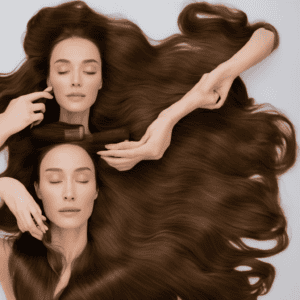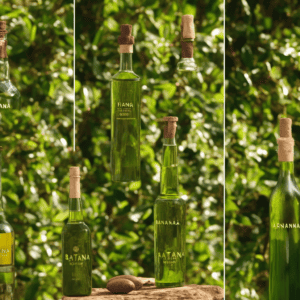You’re deciding between olive oil and batana oil for your hair, but which one is best for you? Both nourish your locks, but they have distinct differences. Olive oil is ideal for dry, damaged, or processed hair, while batana oil is perfect for oily hair or scalps prone to flakiness. Both promote healthy growth, but batana oil takes the crown for its superior moisturizing properties. It’s lightweight, non-greasy, and deeply nourishes hair. Want to know how to incorporate these oils into your hair care routine and maximize their benefits?
Origins and Composition Compared
Dating back to ancient civilizations, olive oil originated in the Mediterranean region, whereas batana oil hails from the tropical rainforests of South America, with their distinct geographical roots reflecting in their unique compositions.
You’ll notice that olive oil is typically cultivated in regions with mild winters and hot summers, which allows for a slower ripening process, resulting in a richer flavor and aroma. In contrast, batana oil is cultivated in the humid, tropical climate of South America, where the oil-rich fruit ripens quickly, giving it a lighter, more delicate flavor.
These differences in cultivation methods and regional authenticity have a significant impact on the final product. Olive oil, with its rich, full-bodied flavor, is often associated with traditional Mediterranean cuisine, while batana oil, with its light, nutty flavor, is a staple in many South American dishes.
When choosing between the two, consider the flavor profile you’re aiming for and the authenticity you desire. Do you prefer the rich, bold flavors of the Mediterranean, or the light, delicate flavors of South America?
Hair Benefits and Uses Explored
When you use olive oil or batana oil on your hair, you’ll notice distinct benefits that cater to your specific hair type and needs. For instance, olive oil’s moisturizing properties make it ideal for dry, damaged, or processed hair. It helps lock in moisture, reducing frizz and adding shine.
On the other hand, batana oil’s lightweight, non-greasy texture makes it perfect for oily hair or scalps prone to flakiness. It effectively balances the scalp’s natural pH, calming irritation and itchiness.
Both oils promote healthy hair growth by nourishing your scalp. A gentle scalp massage with either oil stimulates blood flow, strengthening hair follicles and encouraging new growth. Additionally, olive oil’s antioxidant properties protect your hair from environmental stressors, while batana oil’s antifungal properties combat dandruff and other scalp issues.
Regardless of your hair type, incorporating olive oil or batana oil into your hair care routine can lead to stronger, healthier, and more resilient locks.
Drawbacks and Potential Pitfalls
While olive oil and batana oil offer numerous benefits, you should be aware that they’re not without their drawbacks, and improper use can lead to weighed-down hair or an oily scalp. You might experience over processing risks if you use these oils excessively or combine them with other hair treatments. This can cause damage to your hair, particularly if you have fine or fragile locks. Additionally, you may be susceptible to scalp irritation, especially if you have sensitive skin.
Be cautious when applying these oils, as they can clog your pores and lead to itchiness, redness, or even acne. It’s essential to perform a patch test before using either olive oil or batana oil, especially if you’re new to using hair oils. By being aware of these potential pitfalls, you can take steps to mitigate them and enjoy the benefits of these natural hair oils. Remember to always use them in moderation and according to your hair type and needs.
Moisturizing and Nourishing Properties
By using olive oil or batana oil, you’ll be treating your hair to a hydrating boost that’ll leave your locks soft, silky, and manageable. These natural oils are packed with moisturizing properties that’ll quench your hair’s thirst for hydration. When you apply olive oil or batana oil to your hair, you’re providing your strands with a much-needed drink of hydration. This intense hydrating treatment helps to lock in moisture, leaving your hair feeling supple and looking healthy.
The moisturizing power of these oils doesn’t stop there. They also have the ability to nourish your hair from the inside out, promoting locks rejuvenation. As you massage the oil into your scalp, you’re stimulating blood flow and encouraging healthy hair growth. The antioxidants present in olive oil and batana oil help to protect your hair from environmental stressors, further enhancing their moisturizing and nourishing properties. By incorporating one of these oils into your hair care routine, you’ll be giving your hair the TLC it needs to thrive.
The Verdict: Which Oil Reigns Supreme
After examining the moisturizing and nourishing properties of olive oil and batana oil, it’s time to declare a winner in the battle for the best natural hair oil. Based on our analysis, batana oil takes the crown. Its unique composition and ability to deeply nourish your locks make it an ideal choice for hair care routines. While olive oil is a great option, batana oil’s superior moisturizing properties and ability to lock in moisture make it the better choice.
When it comes to product preferences, batana oil is the clear winner. Its lightweight, non-greasy texture makes it perfect for daily use, and its ability to detangle and add shine to your hair is unmatched. Whether you’re looking to repair damaged hair or simply add some extra moisture to your locks, batana oil is the way to go. So, if you’re looking to upgrade your hair care routine, consider making the switch to batana oil. Your hair will thank you.
Conclusion
You’ve weighed the pros and cons of olive oil and baobab oil for your natural hair. Both have their strengths, but if you’re looking for a more intense moisturizing treatment, baobab oil’s unique fatty acid profile takes the win.
However, if you’re on a budget and want a versatile oil for daily use, olive oil is a great choice. Ultimately, it’s up to you to decide which oil reigns supreme in your hair care routine.






